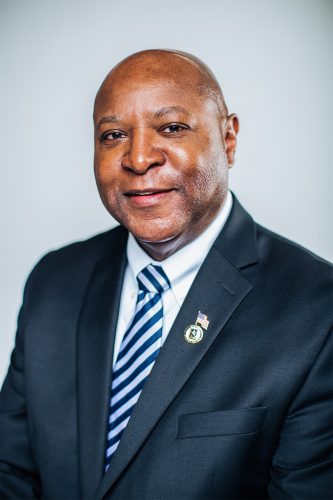
On the evening of June 1, Secret Service and military police violently cleared Lafayette Square in Washington, D.C., of the hundreds of demonstrators who gathered to protest police brutality and systemic racism. According to media reports, police fired tear gas, smoke bombs and pepper balls at protesters and arrested dozens of people. Minutes later, President Donald Trump walked across the square to declare “law and order.”
In the following days, the D.C. National Guard faced off against protesters, guarding the White House, as Trump considered deploying the 82nd Airborne Division, which stayed on standby just outside the city. Governors have activated their National Guards in more than 30 other states to respond to protests in the wake of the police killing of George Floyd.
When Sean Davis saw the violence in Lafayette Square, he says, he was “livid.” Davis, a writer, artist and Purple Heart veteran who served in the U.S. Army and Oregon National Guard for 12 years, started getting calls from friends.
“This isn’t the country that I bled for,” one friend, a veteran in Sandy, told Davis.
“He wanted to go to Washington, D.C., and do a sit-in or chain himself to the White House gate or something,” Davis says. “I said, ‘Well, let’s start with the lawmakers here.’”
Davis and a group of around 15 veterans across the political spectrum came together to stand against “the use of military force against our own citizens peacefully protesting, just exercising their First Amendment rights.”
The group began organizing meetings with Oregon legislators to discuss condemning and preventing military force against protesters and the demilitarization of police. They also want to clarify what kind of directives the Oregon National Guard would receive, should it be activated. Gov. Kate Brown activated 50 National Guardsmen to act as support for the Portland Police Bureau on June 1, but said that they would not be on the front lines or making arrests.
“I don’t know how it can’t be personal for everybody,” Davis says. “If what happened to George Floyd would have happened in Baghdad or Taji, where I was at during war, that person would have been prosecuted for a war crime.”
They also met with Rep. Peter DeFazio’s and Sen. Ron Wyden’s offices. On the state level they’ve met with Oregon Sen. James Manning, a Democrat who represents north and west Eugene, and Rep. Paul Evans, a Democrat representing Monmouth. And they have scheduled or reached out to many others, from other U.S. representatives to county commissioners and city mayors.
Manning, who chairs the Veterans and Emergency Preparedness Committee, says he, too, is concerned about the use of military force against protesters. “And when you have veterans that have that much concern, then we need to make sure that their voices are heard.” Manning himself is a former police officer and served in the Army.
Manning is coordinating a meeting between the group and representatives of the Governor’s Office, the Oregon National Guard Command Group and Oregon Department of Veterans’ Affairs.
Jacob Meeks joined Davis after seeing his Facebook posts. “I’ve been an aid worker for the past 10 years, so I’ve been in a lot of different countries in the world,” Meeks says. “Calling in the military on your own people, when they’re protesting, demonstrating, is not a good sign. Not a good sign about the direction that the country is headed in.”
Meeks is a veteran of the 82nd Airborne, the division that Trump ordered on standby during the Lafayette Square protests. “I cannot imagine how ungodly strange that would be as, like, an 18-,19-, 20-year-old kid, you know, who is trained to go to war and to look at the other as the enemy, and then to put those kids, or young people, you know, with rounds on the street, and then tell them to be a peacekeeping force,” Meeks says. “It’s crazy.”
Brown called for a special session that starts Wednesday, June 24, and Manning says one of their goals will be passing some police accountability bills, focusing in part on police funding.
Davis and Meeks say they are still in the early stages of figuring out what exactly their goals are. Meeks says these conversations are really positive and all about “snowballing ideas” for possible legislation that would condemn the actions at Lafayette Square and clarify how the National Guard can be used during protests. “This is a problem and that this shouldn’t be happening. It shouldn’t happen,” Meeks says. “And it should in no way be normalized.”